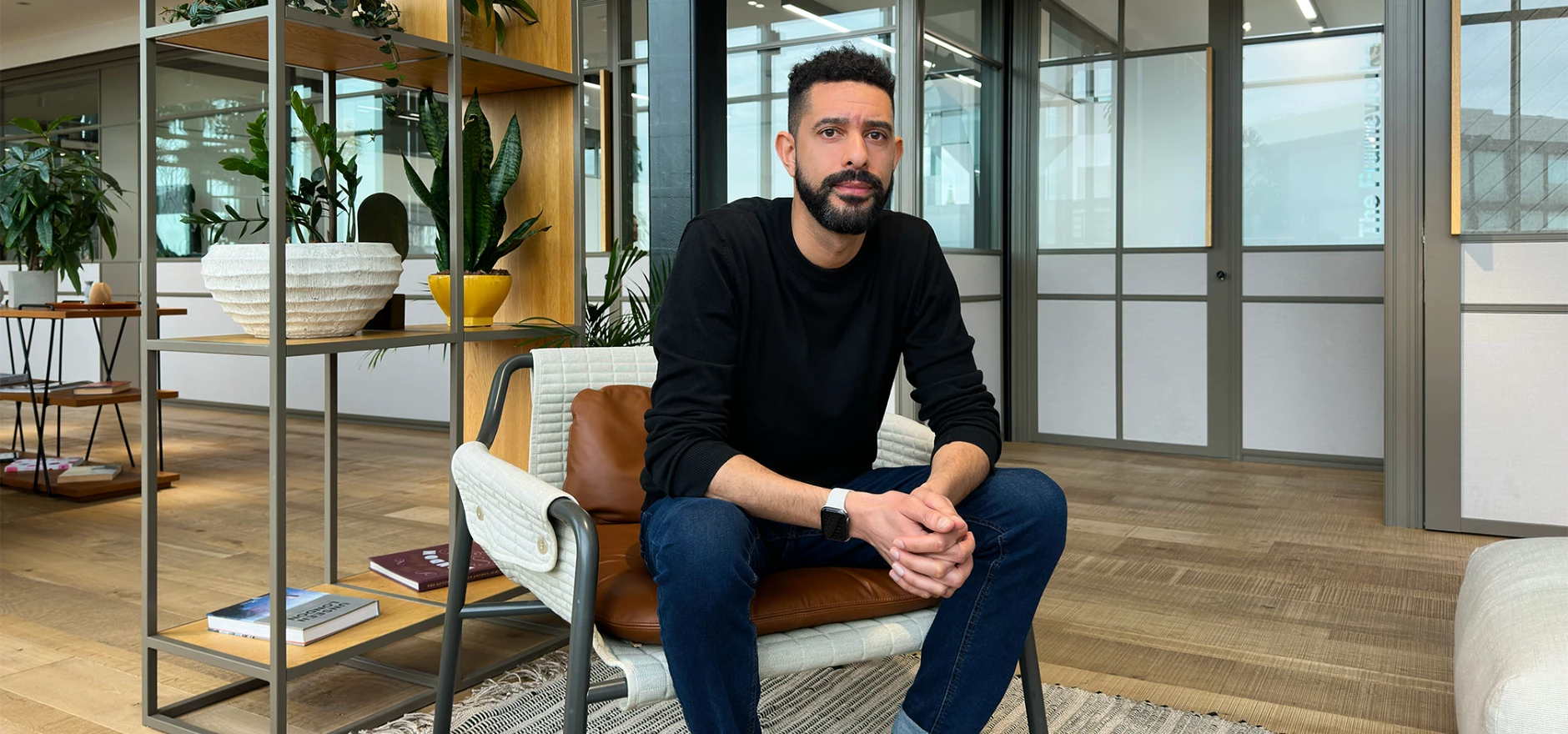
Then and now... David Alexander
In the latest instalment of Bdaily's Then and now series, David Alexander, creative director and head of studio at London-based The Frameworks, reflects on his career, from his first role to the present day, highlighting the lessons he has learned from his personal and professional evolution.
You’re creative director and head of studio at The Frameworks. What does your role entail?
I have the privilege of leading an incredibly talented team of designers and writers, who thrive on turning complex client challenges into award-winning creative solutions.
Day-to-day, I oversee our creative output and play a key role in shaping the core ideas that sit at the heart of our clients’ brand identities and campaigns.
Did you always want to work in the creative industry? Or did you have other ambitions when you were growing up?
It took a while to land on design.
Initially, I wanted to be an astronaut, thanks to a fascination with space, or a meteorologist, because I was equally obsessed with the weather, climate and geography.
While I was always creative, or ‘arty’, growing up, the creative industry wasn’t really on my radar.
It wasn’t until my final year of secondary school that I realised I wanted to pursue it, and even then I thought I’d go into product design, rather than graphic design.
What was your first job – and did you enjoy it?
I was a recreational assistant at my secondary school.
I was in charge of the after-school and weekend use of the sports hall and playing fields, making sure everything was clean and tidy, and that visitors had what they needed.
I was incredibly introverted back then, so I found the face-to-face side of it quite tough.
But I took a lot of pride in looking after the facilities and the school ‘brand’.
Were there any mentors or individuals that helped shape your career? And are you still applying lessons you learned then to your workforce of today?
The first was my art teacher.
When I handed him my UCAS form to apply for product design at university, he told me he thought I was making a big mistake.
He said I was a graphic designer, not a product designer, and convinced me to try a year studying it at art college.
I knew he was right after the first day.
The second was my lecturer at that art college.
Over the course of the year, she really pushed me.
She took me out of my comfort zone, made me lead a tough group project and gave me the confidence to study graphic design at university.
She saw something in me before I saw it in myself.
I often think about how different things would have been if I hadn’t crossed paths with them both.
What attracted you to the creative sector?
I’ve always loved solving problems, coming up with clever ideas and making things look good.
Those are essentially the ingredients of graphic design, so it felt like a natural fit.
I also love technology, so the intersection between print and digital design has always really appealed to me.
How do you feel you’ve changed as a person over the years? Have career roles brought new dimensions to your personality?
I never saw myself as a leader.
In fact, there have been plenty of times where I’ve actively avoided it.
That’s partly down to being introverted and dealing with imposter syndrome.
But, over time, enough people have backed me and nudged me in that direction, so maybe I’m better at it than I thought.
Experience has also shifted how I see things.
I’ve learned to prioritise better.
I still sweat the small stuff, but I’m better at recognising when to let things go.
You’ve seen many changes to the employment world across your career – how do you see the workplace evolving in years to come?
When I started out, getting a degree was essential for landing a good design job.
And knowing how to use Adobe software was still a pretty niche skill, not least because of how much it cost.
That’s all changed thanks to open-source software and inexpensive apps like Canva.
Pretty much anyone can now call themselves a designer, whether they’ve had formal training or not.
We’re now seeing generative artificial intelligence make its way into the creative workplace, and there’s a real fear it could replace the need for creatives altogether.
But I feel strongly that artificial intelligence can actually enhance what we do.
The creatives who truly know their craft and choose to embrace these tools, rather than fear them, are the ones who will come out on top in the years ahead.
Looking to promote your product/service to SME businesses in your region? Find out how Bdaily can help →
Enjoy the read? Get Bdaily delivered.
Sign up to receive our popular morning London email for free.








 Ready to scale? Buy-and-build offers opportunity
Ready to scale? Buy-and-build offers opportunity
 When will our regional economy grow?
When will our regional economy grow?
 Creating a thriving North East construction sector
Creating a thriving North East construction sector
 Why investors are still backing the North East
Why investors are still backing the North East
 Time to stop risking Britain’s family businesses
Time to stop risking Britain’s family businesses
 A year of growth, collaboration and impact
A year of growth, collaboration and impact
 2000 reasons for North East business positivity
2000 reasons for North East business positivity
 How to make your growth strategy deliver in 2026
How to make your growth strategy deliver in 2026
 Powering a new wave of regional screen indies
Powering a new wave of regional screen indies
 A new year and a new outlook for property scene
A new year and a new outlook for property scene
 Zero per cent - but maximum brand exposure
Zero per cent - but maximum brand exposure
 We don’t talk about money stress enough
We don’t talk about money stress enough